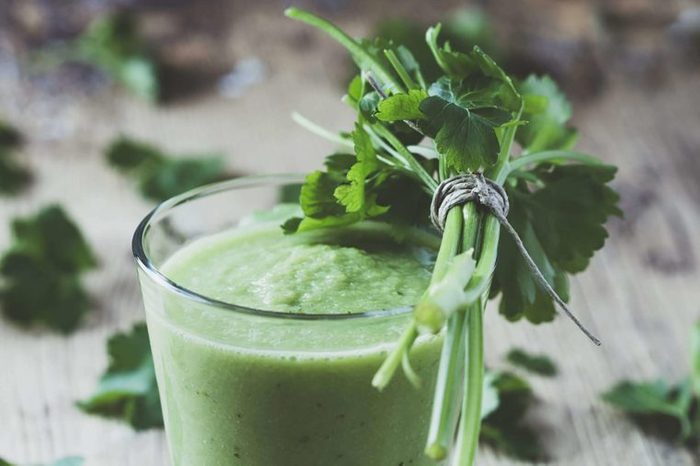
Breast cancer protection
Parsley may have specific protective benefits against breast cancer. According to a 2017 study in the journal Geroscience, apigenin, a natural substance in parsley shows promise as a non-toxic treatment for human breast cancer. (See other ways your diet could lower your risk for breast cancer.)
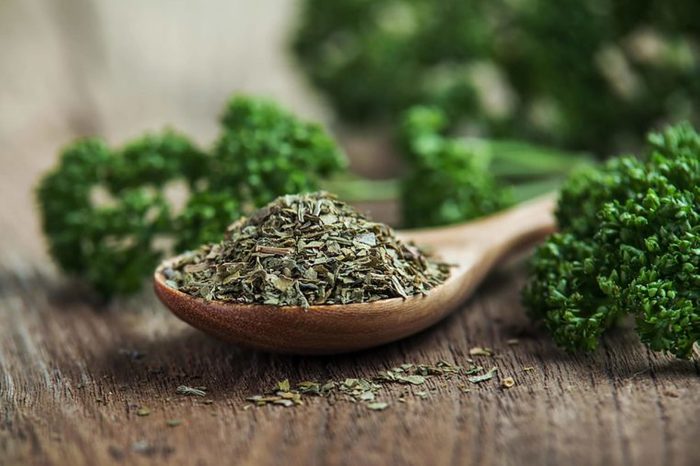
Fights inflammation
It’s one of the more troubling general symptoms—inflammation can actually be deadly. Parsley helps because it’s high in antioxidants like vitamin C, A, and E, which can help soothe inflammation. “This can help reduce the risk of arthritis, an inflammation of the joints,” says Brunilda Nazario, MD. “It is also an excellent source of flavonoids, antioxidants that help reduce the risk of many chronic diseases, including cancer, atherosclerosis, Alzheimer’s, and Parkinson’s disease.” (Here are other foods that can reduce inflammation.)

Makes grilling safer
“Consume parsley with your char-grilled chicken, fish, and steak to help minimize the cancer-causing effects of heterocyclic amines,” says Amanda Capriglione, RD, CDN. “Heterocyclic amines are made when proteins are cooked at high temperatures.” She suggests making a chimichurri sauce by blending parsley, fresh garlic, salt, pepper, some apple cider or red wine vinegar and olive oil together and adding to cooked meats. (Learn about other grilling mistakes that could make you sick.)
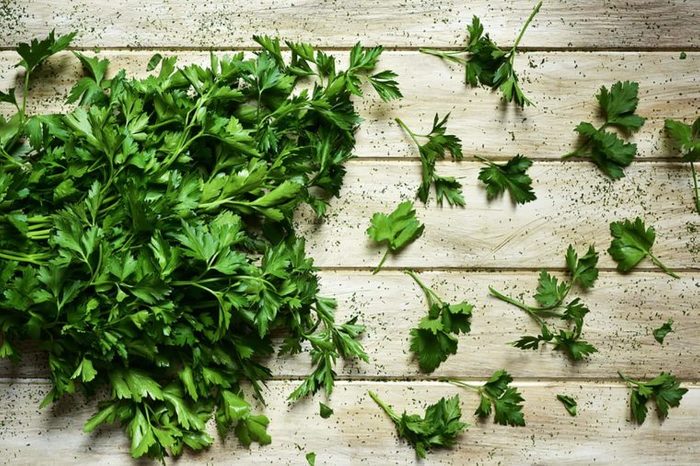
Prevents lines and wrinkles
Eating parsley benefits your complexion. The herb is high in vitamin C, and vitamin C makes collagen, which gives skin its structure and strength. “Collagen helps to iron out fine lines and wrinkles,” says Capriglione. “Make a vitamin C-packed salad with some greens (including parsley), orange pieces, and finish with a lemony vinaigrette.” (Here are other great foods for younger skin.
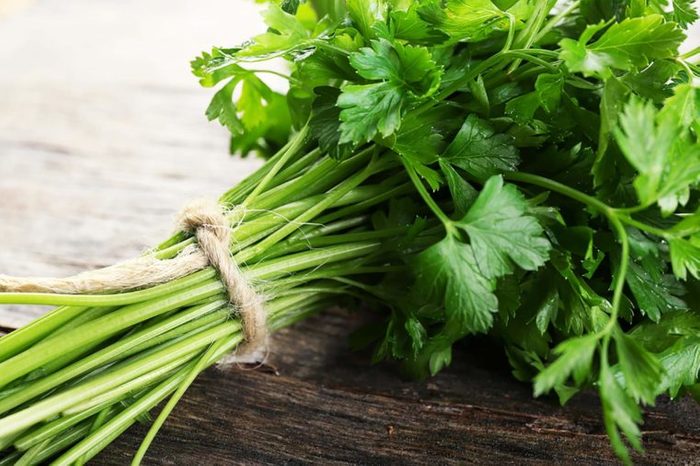
Strengthens bones
“Ten sprigs of parsley is enough to reach your daily dose of vitamin K,” says Capriglione. Getting an adequate amount of vitamin K in your diet may help protect against bone fractures, as it helps make the protein for bones and blood clotting. (Psst: See the one food that can make your bones stronger.)
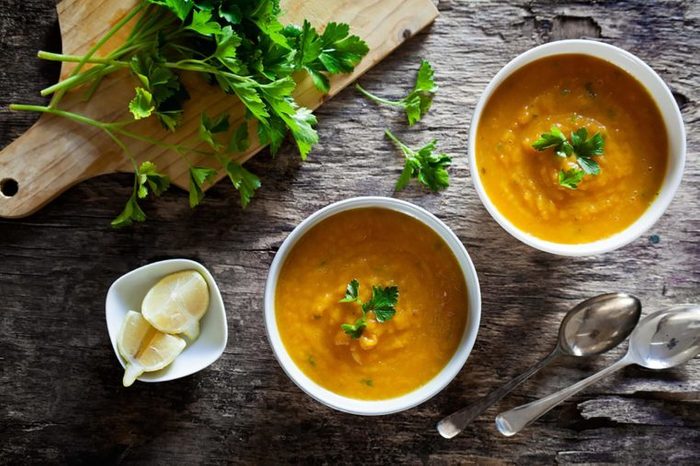
Helps with digestion
Settle your stomach with the help of this soothing herb. “It can help aid in digestion and help reduce bloating,” says Capriglione. (Psst: Here’s why you might be feeling bloated.) “It contains compounds that enable the expulsion of gas from the body.” Add some flat leaf parsley into your dinner before a big night out.
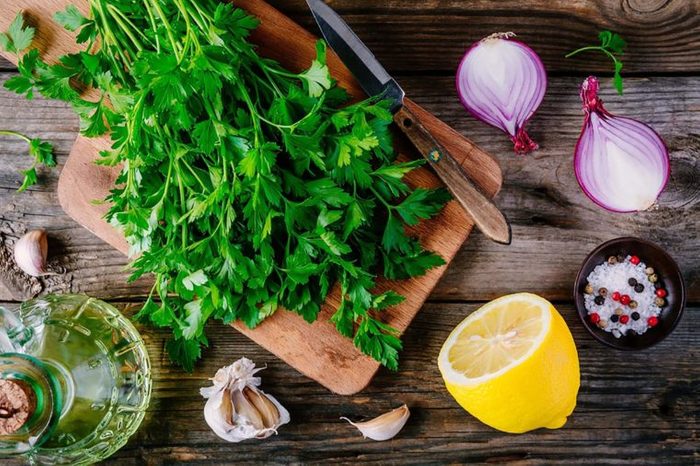
Freshens breath
Eating parsley can help you freshen your breath and mask any bad odors. “Parsley acts as a natural breath freshener, especially after consuming garlic or onion,” says Capriglione. (Here are other natural ways to freshen your breath.)
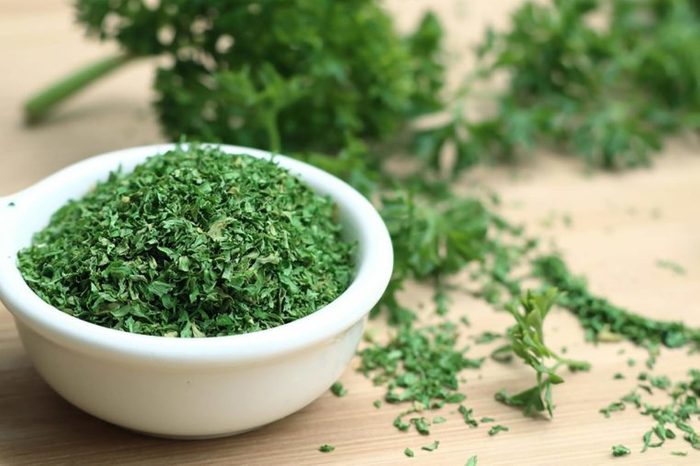
Helps with bladder infections
Suffer from UTIs? Consider adding some parsley into your diet. “Homeopathic practitioners use this to treat urinary tract infections and kidney and bladder stones,” says Nazario. “It contains chemicals that cause muscle contraction in the intestine, bladder, and uterus. Hence, indigestion, UTIs, and menstrual cramps were often treated with concoctions of this herb.”
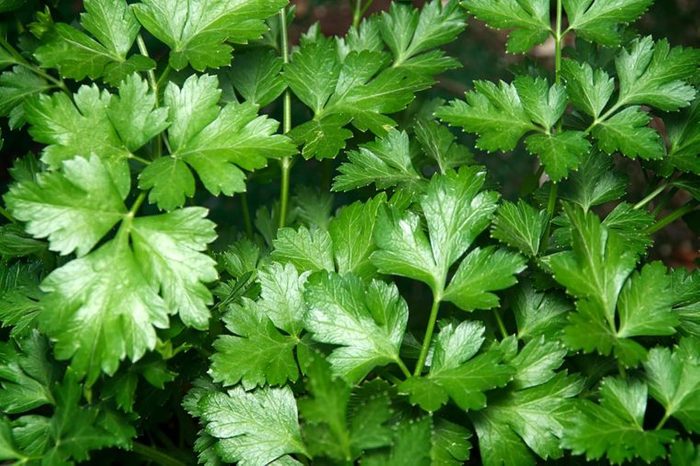
Fights off heart disease
Raw parsley contains folate, an important B vitamin, making it a candidate for preventing heart troubles. “Folate is involved in maintaining normal levels of the amino acid homocysteine, which is important given that elevated levels are associated with cardiovascular diseases,” says Carolina Guizar, RDN. “Like vitamin C, folate is heat sensitive and is best retained when consumed in fresh parsley.”

Protects your eyes
“Parsley is a source of plant-based vitamin A,” says Guizar. “Adequate vitamin A intake ensures the optimal health of our eyes, preventing dryness, night blindness, and cataracts.”
Medically reviewed by Samantha Cassetty, MS, RD.
Next, learn about all the health benefits of apples.
